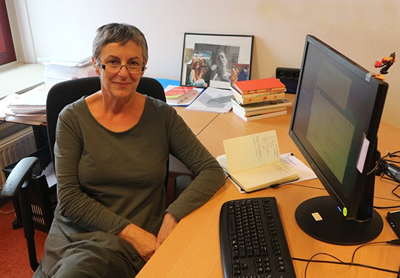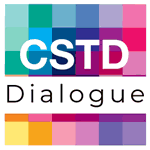Written byYola Georgiadou, Professor, Faculty of Geo-Information Science and Earth Observation of the University of Twente, The Netherlands
In the past, supply and demand was the dominant metaphor for the interface between geo-information science (GIScience) and policy for global development.
This is not the case any longer. Food and water security, natural and anthropogenic hazards, disease pandemics, extreme poverty, and climate change are wicked policy problems.
They involve multiple or unknown causes, anticipated and unanticipated effects, and high levels of disagreement concerning the nature of a problem and the appropriateness of solutions.
Policy actors cannot identify them “out there” and “address” them with a science-based “solution.” Instead, competing coalitions of policy actors are actively framing and reframing policy problems in different ways, frequently in endless debates.
Often the existence of certain “problems” is itself vigorously debated. For instance, influential climate deniers and skeptics claim that climate change is not a problem at all. Policy actors produce spatial knowledge with different degrees of certainty and in the process mobilize contradictory meanings of policy values.
Consider how difficult it can be to agree on the meaning of social justice as a policy value. Is justice just outcomes for all? Or, is justice a just, rights-based process? Or, is it just deserts—to each individual his due?
GIScience is not the sole source of certified knowledge, but an inspiring advisor in the structuring of wicked policy problems. Because policy actors attempt to solve ‘new’ wicked problems by mixing solutions to ‘old’ problems, they are inclined to quickly move a wicked problem into a more structured direction that is more familiar to them and more compatible with existing standard operating procedures.
Policy problem structuring is replacing the crude demand and supply metaphor. The typology below illustrates the efforts to move a policy problem from box 4 to 1, either directly, or by languishing in boxes 2 and 3 for a while.
Spatial Knowledge | Values of Policy Actors | |
Consensus | Dissensus | |
Certain | (1) Tame or structured problems GIScience as problem solver | (3) Moderately structured problems GIScience as mediator |
Uncertain | (2) Moderately structured problems GIScience as analyst | (4) Wicked or unstructured problems GIScience as problem recognizer |
At the heart of the typology is the opposed pair of structured (or tame) versus unstructured (or wicked) problems.
Problems are tame or structured (box 1) when policy actors have far-reaching agreement on values, and are certain about the spatial knowledge needed to solve them.
In contrast, wicked or unstructured problems (box 4) are fraught with ethical disagreement and divisiveness in policy actors’ preferences, while spatial knowledge is uncertain.
Moderately structured problems appear in two variants—with consensus (box 2) or with dissensus (box 3) regarding policy actors’ understandings of important values.
The typology casts a different light on the various uses of GIScience—as a problem recognizer for wicked problems, as problem analyst or mediator for moderately structured problems and as problem solver for tame problems.
In the emerging post-truth world, big data analytics may create different parallel realities and irreconcilable values and stand in the way of achieving a minimal consensus about the nature of reality. The search for new critical representations of the science-policy interface that can keep at least some questions outside of the realm of politics must continue.
References
Georgiadou, Y. and D. Reckien (2018) Geo-Information Tools, Governance, and Wicked Policy Problems
Georgiadou, Y. (2019) Opportunities and risks arising from digital and emerging technologies - three recommendations. United Nations Fourth Expert Group Meeting on Science, Technology and Innovation (STI) Roadmaps for the SDGs Agenda, Nairobi, Kenya.
What must be done to ensure that the potential offered by science, technology and innovation towards achieving the SDGs is ultimately realized?
In the context of the UN Commission on Science and Technology for Development, the CSTD Dialogue brings together leaders and experts to address this question and contribute to rigorous thinking on the opportunities and challenges of STI in several crucial areas including gender equality, food security and poverty reduction.
The conversation continues at the twenty-second session of the CSTD and as an online exchange by thought leaders.


